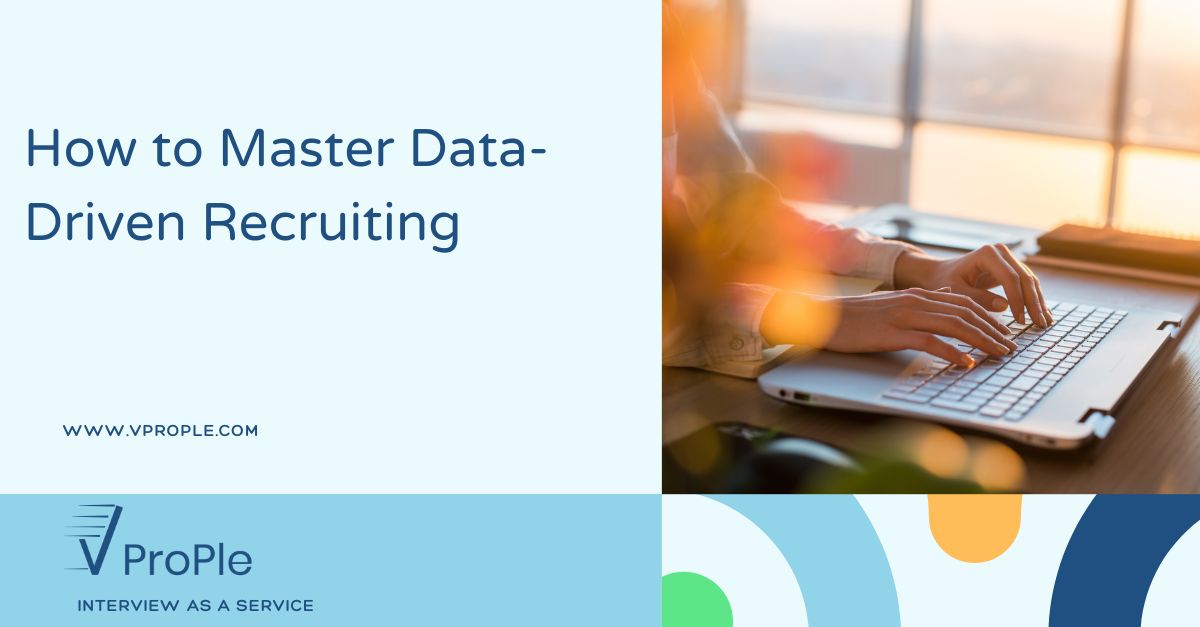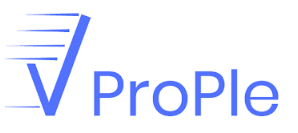This website use cookies to help you have a superior and more relevant browsing experience on the website.
How to Master Data-Driven Recruiting
-
29/02/2024

Over the years,
recruiting has not been a data-driven process but has been based on chances,
intuitions, and assumptions. The hiring experts didn’t have a solid method to
depend on. But as the world moves ahead in this technological journey, there
have been numerous tools popping up here and there. There is now enough
software for you to improve the recruitment and selection process.
What
is Data-Driven Recruiting?
In Data-driven
recruiting, the decisions are made by using facts and statistics. It goes beyond
using the traditional tools available to us, like screening of resumes and
traditional face-to-face interviews. This not only makes the process efficient
and effective but it also helps eliminate biases. You can further opt for an
interview as a service platform to make your job easier.
By using
data-driven methods, you can optimize the process by understanding the trends
and patterns easily and having enough data to back them while making your
decisions. Lately, a lot of modern HR technologies have been taking over
workplaces, be it Human Resource Information Systems (HRIS), Performance
Management Platforms, and Applicant Tracking Systems (ATS). With the advent of
these technologies, there is now enough data backed up that can be used for
data-driven hiring.
The job market is
evolving every day and everybody is in a race to hire the top talent. The
process has become extremely lengthy and time-consuming if you choose to do it
the traditional way. Instead, using technical interview platforms that can
assist you with the process can come across as a better option. These platforms
will help you understand how to make the hiring process better.
Examples
of Data-Driven Hiring
In the entire
recruitment process, there are many stages at which you can rely on a
data-driven method to make decisions.
Selection
Process
In the selection
process, recruiters choose the best-suited candidates out of a pool of resumes.
In this stage, the data is collected by screening the resumes, tests to assess
their skills, and interviews. In this stage, you have the data from all these
sources to make a better, informed decision. Many organizations have now
started focusing on streamlining this stage of the process further by using
technical interview services. These services carry out each step smoothly and
efficiently, in less time.
Candidate
Experience
Candidate
Experience is the overall impression that a candidate gets of a company and its
onboarding process while sitting in for interviews. With a new generation
entering the workforce, candidate experience has become quite an important part
of the hiring process. This can be measured using the Net Promoter Score, which
can help companies identify their areas of improvement and work on them. It
also helps recruiters understand if the actual roles fit into the job they
advertised for.
Recruitment
Planning
Data-driven methods
can help improve your recruitment planning to a great extent. With data
available to back your decisions. You will now have data to know where to spend
your expenditure. There are different metrics that can be used and adjusted
according to your requirements.
How
is Data-Driven Recruiting Helpful?
Efficiency:
Monitoring the communication process of your hiring team and the candidates can
give you an idea about the areas of improvement and if there is a way the
process can be further streamlined.
Allocating
the Budget: If you are able to access all the
data from the process, you will be able to identify the areas which benefit you
the most and you will be able to yield better outcomes further.
Making
Objective Decisions: Achieve decisions that are objective
and backed by statistical data that can be analyzed. Shortlisting candidates
using scores and metrics can help you back up your decisions in case they are
ever challenged.
Recognize
Potential Hiring Issues: Find out the bottlenecks of
your process by understanding if any of the stages need any tweaking and
changes. With data-driven methods, you will be able to discover the issues
faster and start working on fixing them faster. It can also help you make your
hiring diverse and inclusive and not based on any biases.
Importance
of Data-Driven Recruiting
Reduce
Hiring Costs: Data-driven
hiring optimizes the process and reduces the time-to-hire drastically. It helps
you eliminate unnecessary expenses and allocate your budget to where it is most
beneficial.
Streamlined
Hiring Process: You can opt for platforms that
provide technical interviews as a service. These platforms will help you
collect and analyze the data and identify the issues that need to be solved to
make the process smoother. This can be done by simplifying the application
process or by using features like auto-scheduling of interviews.
Data-driven recruiting is starting to become an
integral part of the recruitment process and it is only supposed to increase in
the future. By using data as a base, you can make informed decisions and stand
by them.


